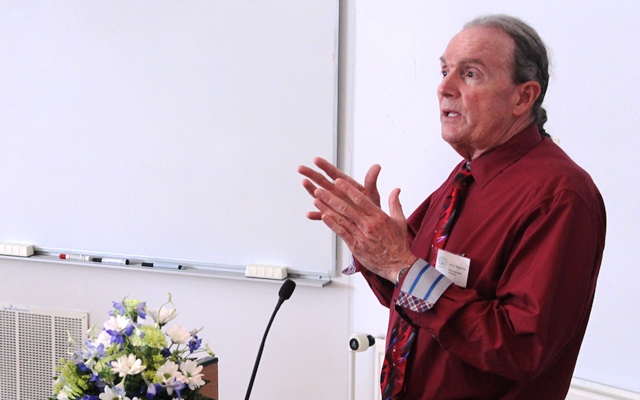Professor John P. Reganold has shaped his career by his interest in agriculture and the environment. He has over 30 years of experience in researching the effects on organic, integrated, and conventional farming systems with focus on productivity, financial performance, environmental quality, and social wellbeing.
Different farming systems can be compared using four key sustainability indicators: productivity, environmental impact, economic viability, and social wellbeing. In the light of these aspects, organic farming systems seem to balance multiple sustainability goals better than their conventional counterparts.
- In addition, striving towards all four sustainability goals encourages farmers and researchers to innovate, Reganold states.
The policymakers should create an enabling environment for these innovations. This allows organic and other innovative farming systems to move towards truly sustainable production systems. The consequences for food and ecosystem security are huge, and the task is not easy.
- Organic agriculture can contribute a larger share in feeding the world. However, one farming system alone will not safely feed the planet, Reganold points out.
Based on present evidence, although organic farming systems produce lower yield than conventional ones, they are more profitable and environmentally friendly, and deliver equal or more nutritious foods with less to no pesticide residues.
According to Reganold, a blend of organic and other innovative farming systems will be needed for future global food and ecosystem safety. Moreover, further actions are needed, from reducing food waste to changing consumption patterns.
- All this requires policy instruments to facilitate the development and implementation of sustainable farming systems, Reganold emphasizes.
The article is based on the keynote speech given by professor John P. Reganold at the international organic conference in Mikkeli, 19th of June 2017. The conference gathered over 90 researchers from 13 countries to discuss the current research topics in the organic farming sector.
- More information: www.njf.nu/seminars/mikkeli2017
- The conference material will be published in Organic ePrints: www.orgprints.org
